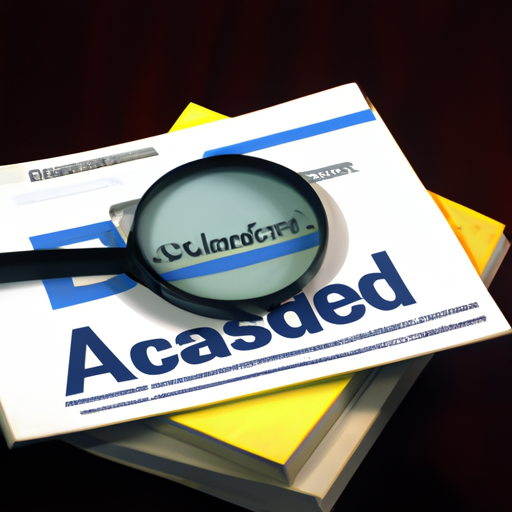In an age where customer satisfaction is paramount, ensuring proper warranty documentation standards is crucial for businesses. From product manufacturers to service providers, having clear and concise warranty terms and conditions not only protects the interests of both parties involved, but also fosters trust and credibility. With a comprehensive understanding of warranty documentation standards, businesses can avoid contentious legal battles and instead focus on delivering exceptional products and services to their valued customers. In this article, we will explore the importance of warranty documentation standards, provide insights into best practices, and address common FAQs regarding this area of law.
Warranty Documentation Standards
Warranty documentation standards play a crucial role in ensuring clear communication and legal compliance between businesses and consumers. By establishing comprehensive guidelines for warranty documentation, companies can enhance customer satisfaction, mitigate legal risks, and streamline their warranty processes. This article will explore the importance of warranty documentation standards, common challenges in implementing them, key elements of effective warranty documentation, legal requirements, various types of warranty documentation, best practices for creating such documentation, benefits of maintaining robust warranty documentation, tips for ensuring compliance, and how a lawyer can assist with warranty documentation standards.
Why Are Warranty Documentation Standards Important?
Enhancing Customer Satisfaction
Warranty documentation serves as a crucial resource for consumers to understand their rights and remedies in relation to a product. By clearly and comprehensively articulating warranty terms and conditions, businesses can enhance customer satisfaction. When customers have a clear understanding of their warranty coverage and claims process, they are more likely to trust the company and have a positive overall experience.
Mitigating Legal Risks
Maintaining robust warranty documentation helps businesses mitigate potential legal risks. By clearly defining warranty terms, limitations, and exclusions, companies can minimize the chances of being faced with legal disputes or liability claims. Adhering to legal requirements and industry standards in warranty documentation also helps safeguard businesses against legal challenges related to consumer protection laws.
Streamlining Warranty Processes
Effective warranty documentation streamlines the warranty process for both businesses and consumers. Clearly outlining the claims process, including necessary documentation and steps to follow, helps expedite claims handling and resolution. This not only saves time and resources for both parties but also ensures a consistent and efficient experience for customers.
Providing Clear Communication
One of the primary purposes of warranty documentation is to provide clear communication between businesses and consumers. By clearly stating the rights and remedies available to customers, as well as any limitations or exclusionary terms, businesses can establish transparency and prevent misunderstandings. Clear communication helps build trust, minimize disputes, and resolve issues in a timely manner.
Common Challenges in Implementing Warranty Documentation Standards
Implementing warranty documentation standards can present various challenges for businesses. Understanding and addressing these challenges is crucial to ensure effective implementation and compliance. Some common challenges include:
Understanding Complex Legal Requirements
Warranty documentation must comply with various federal, state-specific, and international laws and regulations. Understanding and interpreting these complex legal requirements can be challenging for businesses. Lack of knowledge regarding the specific requirements applicable to a particular jurisdiction can result in non-compliance and potential legal consequences. Seeking legal guidance is crucial to ensure compliance with all relevant laws.
Ensuring Consistency and Accuracy
Maintaining consistency and accuracy across warranty documentation can be challenging, especially for businesses that offer a wide range of products or operate in multiple jurisdictions. Consistency ensures that customers have a uniform experience across different products and jurisdictions, while accuracy prevents misleading information or incorrect representations. Standardization of documentation and periodic audits can help address these challenges.
Managing Updates and Revisions
As businesses evolve and products change, warranty documentation requires regular updates and revisions. Managing these updates can be challenging, particularly for businesses with a large product portfolio. Ensuring that all revisions are accurately communicated, implemented, and tracked can be a time-consuming task. Establishing an efficient process for managing updates and revisions is essential to maintain compliance and accuracy.
Training Employees
Educating employees about warranty documentation standards can be a challenge, particularly in larger organizations with high turnover rates or multiple locations. Employees involved in the warranty process must have a thorough understanding of the documentation requirements and be able to effectively communicate warranty information to customers. Implementing regular training programs and providing clear guidelines can help overcome this challenge.
Key Elements of Effective Warranty Documentation
To ensure comprehensive and effective warranty documentation, businesses should include the following key elements:
Warranty Statement
Every warranty documentation should begin with a clear and concise warranty statement. This statement should state the duration and scope of the warranty coverage, as well as any conditions or requirements for customers to avail the warranty benefits.
Product Description
Providing a detailed and accurate product description is essential to warranty documentation. Businesses should clearly identify the product covered by the warranty, including specific model numbers, serial numbers, and any relevant technical specifications. This helps ensure that customers understand which products are eligible for warranty coverage.
Terms and Conditions
The terms and conditions section of warranty documentation should outline the specific rights and obligations of both the business and the customer. It should clearly state what is covered by the warranty, what is excluded, and any additional conditions or limitations. Transparency in terms and conditions helps prevent confusion and potential disputes.
Limitations and Exclusions
Warranty documentation should clearly outline any limitations or exclusions that may apply to the warranty coverage. This may include factors such as misuse, unauthorized repairs, or expiration of the warranty period. Adequately disclosing limitations and exclusions helps manage customer expectations and prevents misunderstandings.
Claims Process
The claims process section provides step-by-step instructions for customers to follow when filing a warranty claim. It should include information on how to initiate a claim, what documentation is required, and the timeframe for claim resolution. Clear and concise instructions streamline the process for customers and improve the efficiency of claims handling.
Rights and Remedies
The rights and remedies section should clearly outline the options available to customers in the event of a warranty claim. It should explain the possible remedies, such as repair, replacement, or refund, and articulate any additional rights customers may have under applicable laws. Providing this information helps customers understand their entitlements and avoids potential disputes.
Legal Requirements for Warranty Documentation
Effective warranty documentation must comply with various legal requirements at the federal, state, and international levels. Understanding these legal requirements is crucial for businesses to ensure compliance and mitigate legal risks. Some important aspects to consider include:
Federal Laws and Regulations
Several federal laws in the United States regulate warranty documentation, including the Magnuson-Moss Warranty Act and the Federal Trade Commission (FTC) regulations. The Magnuson-Moss Warranty Act sets forth requirements for warranties on consumer products, while the FTC regulations govern the content and format of warranty information disclosures. Adhering to these federal laws is essential to avoid penalties and legal complications.
State-Specific Requirements
In addition to federal laws, businesses must also comply with state-specific warranty requirements, which can vary from state to state. Some states have specific provisions regarding warranty duration, remedies, and limitations. It is crucial for businesses to be aware of and comply with the warranty laws of the states in which they operate or sell products.
International Considerations
If a business operates internationally or sells products in other countries, it must also consider the warranty laws and regulations of those jurisdictions. Different countries may have specific requirements regarding warranty terms, disclosures, and consumer rights. Failing to comply with international warranty regulations can result in legal consequences and damage to the business’s reputation.
Types of Warranty Documentation
There are different types of warranty documentation that businesses may utilize based on their specific product offerings and customer needs. Understanding the various types can help businesses tailor their warranty documentation to be most effective. Some common types include:
Express Written Warranties
Express written warranties are warranties that are explicitly stated in writing, either through a warranty card, a separate document, or the product packaging. These warranties provide specific promises and guarantees about the product’s performance and include the terms and conditions of the warranty coverage.
Implied Warranties
Implied warranties are warranties that are automatically provided by law, even if not explicitly stated in writing. These warranties arise from the nature of the product, the seller’s representations, or the course of dealing between the parties. Implied warranties typically include an implied warranty of merchantability and an implied warranty of fitness for a particular purpose.
Limited Warranties
Limited warranties provide specific coverage for a defined period of time and typically have specific conditions and limitations. These warranties may cover certain components or aspects of the product, and may exclude certain types of damage or misuse. Limited warranties often require the customer to register the product or meet certain conditions to avail of the warranty benefits.
Extended Warranties
Extended warranties, also known as service contracts or protection plans, offer additional coverage beyond the standard manufacturer’s warranty. These warranties are typically purchased separately and provide extended protection for a longer period of time. Extended warranties can offer peace of mind to customers and can be an additional revenue stream for businesses.
Best Practices for Creating Warranty Documentation
To create effective warranty documentation, businesses should follow these best practices:
Use Clear and Concise Language
Warranty documentation should be written in clear and concise language that is easily understood by the average consumer. Avoid using technical jargon or complex legal terminology that may confuse customers. Providing straightforward information helps customers grasp the terms and conditions of the warranty without any ambiguity.
Address Potential Risks and Liabilities
Warranty documentation should explicitly address potential risks and liabilities that may arise from the use or misuse of the product. Clearly stating limitations, exclusions, and circumstances that may void the warranty coverage helps manage customer expectations and prevents unnecessary disputes. Being upfront about potential risks also demonstrates transparency and builds trust with customers.
Include Detailed Product Information
Businesses should ensure that warranty documentation includes detailed product information, such as product descriptions, model numbers, and technical specifications. Providing accurate and comprehensive product information helps customers understand the scope and applicability of the warranty coverage. It also assists in identifying eligible products for warranty claims.
Provide Step-by-Step Claims Process
The warranty documentation should include a clear and easy-to-follow step-by-step guide for customers to initiate and handle warranty claims. This can involve providing contact information, specifying required documentation, and outlining the necessary steps for claim resolution. A well-defined claims process reduces confusion and enhances customer satisfaction.
Ensure Compliance with Applicable Laws
Businesses must ensure that their warranty documentation complies with all applicable laws and regulations. This includes federal, state, and international laws that govern warranty requirements. Consulting with legal experts or industry professionals can help businesses ensure that their warranty documentation adheres to all necessary legal standards.
Consider Legal Review and Approval
Given the potential legal implications of warranty documentation, it is advisable for businesses to involve legal professionals in their drafting and review processes. Seeking legal review and approval ensures that the warranty documentation complies with all relevant laws and regulations. Legal professionals can also provide valuable guidance on potential risks, additional clauses, or modifications to enhance the effectiveness of warranty documentation.
Benefits of Maintaining Robust Warranty Documentation
Maintaining robust warranty documentation offers several benefits for businesses. Some key benefits include:
Enhanced Consumer Trust
Clear and comprehensive warranty documentation enhances consumer trust in the business and its products. When customers have access to well-documented warranty terms and conditions, they are more likely to trust the company’s commitment to customer satisfaction. This trust can lead to positive brand reputation and increased customer loyalty.
Reduced Legal Disputes
Robust warranty documentation helps minimize the chances of legal disputes arising from warranty claims. By clearly delineating the rights, obligations, and limitations of both the business and the customer, businesses can effectively manage customer expectations. Clear communication through proper documentation reduces ambiguity, misunderstandings, and potential conflicts.
Improved Risk Management
Effective warranty documentation enables businesses to manage risks associated with warranty claims. By outlining potential risks, exclusions, and limitations, businesses can proactively address and manage customer expectations. This helps prevent unnecessary claims, misuse of warranties, and reputational damage.
Competitive Advantage
Maintaining robust warranty documentation can provide businesses with a competitive edge. Clear and customer-friendly warranty terms and conditions differentiate a business from its competitors. By offering more comprehensive and transparent warranty coverage, businesses can attract and retain customers who value trust, reliability, and ease of claims processes.
Tips for Ensuring Compliance with Warranty Documentation Standards
To ensure compliance with warranty documentation standards, businesses should follow these tips:
Regularly Review and Update Documentation
Warranty documentation should be periodically reviewed and updated to reflect any changes in products, regulations, or business practices. This ensures that the documentation remains accurate, relevant, and compliant. Regularly reviewing and updating warranty documentation helps businesses maintain compliance and avoid potential legal issues.
Train Employees on Warranty Policies
Educating employees involved in the warranty process is crucial to ensure consistent compliance with warranty documentation standards. Providing training sessions on warranty policies, claims handling, and documentation requirements helps employees understand their responsibilities and provides them with the knowledge to effectively communicate warranty information to customers.
Document Warranty Claims and Resolutions
Maintaining thorough records of warranty claims and their resolutions is essential for compliance and risk management. Documenting the entire claims process, including communication with customers, helps businesses track and demonstrate compliance with warranty documentation. Detailed records also assist in identifying patterns, potential issues, and opportunities for improvement.
Maintain Records for Appropriate Duration
Businesses should retain warranty documentation and related records for the appropriate duration as required by applicable laws and regulations. Keeping documentation for the necessary period ensures compliance with legal obligations and facilitates retrieval of information when needed. It is important to consult legal experts to determine the specific retention requirements for warranty documentation.
How a Lawyer Can Help with Warranty Documentation Standards
Engaging the services of a lawyer who specializes in warranty documentation can provide businesses with invaluable assistance in maintaining compliance and mitigating legal risks. Some ways in which a lawyer can help include:
Legal Review and Compliance Assessment
A lawyer can conduct a comprehensive review of a business’s existing warranty documentation to ensure compliance with all relevant laws and regulations. They can assess potential areas of risk or non-compliance and provide guidance on necessary modifications or additions to achieve compliance.
Drafting and Reviewing Warranty Documents
Lawyers experienced in warranty documentation can draft or review warranty documents to ensure that they accurately reflect applicable laws and effectively protect the business’s interests. They can provide insights into industry best practices and tailor the documentation to meet the unique needs of the business and its products.
Providing Guidance on Best Practices
A lawyer can offer guidance on best practices for warranty documentation, drawing on their legal expertise and knowledge of industry standards. They can provide valuable insights into potential risks, areas of improvement, and strategies to enhance compliance and customer satisfaction.
Representing Businesses in Warranty Disputes
In the event of warranty-related disputes or litigation, a lawyer can represent businesses and their interests. They can navigate the legal complexities, negotiate settlements, or advocate for the business in court. Having an experienced lawyer by their side helps businesses protect their rights, minimize liabilities, and achieve favorable outcomes.
Risk Management and Prevention Strategies
Lawyers can assist with developing risk management and prevention strategies to help businesses minimize the likelihood of warranty-related legal issues. They can conduct audits, recommend policy improvements, and assist in the development of internal processes to ensure compliance with warranty documentation standards.
By engaging the services of a lawyer specializing in warranty documentation, businesses can navigate the complexities of warranty law and ensure compliance with necessary standards, thereby protecting their interests and reputation.
Frequently Asked Questions (FAQs)
-
Are there specific federal laws that dictate the content and format of warranty documentation?
- Yes, the Magnuson-Moss Warranty Act and the Federal Trade Commission (FTC) regulations provide guidelines for warranty information disclosures, including the content and format of warranty documentation.
-
How long should businesses retain warranty documentation and related records?
- The retention period for warranty documentation varies depending on applicable laws and regulations. It is advisable to consult legal experts to determine the specific retention requirements for warranty documentation.
-
Can warranty documentation be customized for different product categories?
- Yes, businesses can customize warranty documentation to suit different product categories. Each product may have unique warranty terms, exclusions, or claims processes that need to be clearly communicated in the documentation.
-
What should businesses do if their existing warranty documentation does not comply with legal requirements?
- If existing warranty documentation does not comply with legal requirements, businesses should seek legal guidance to assess the necessary modifications or additions to achieve compliance. Legal professionals can help review and revise the documentation to ensure compliance with applicable laws and regulations.
-
How can businesses effectively communicate changes or updates to warranty documentation?
- Businesses should communicate changes or updates to warranty documentation through clear and direct channels. This may include updating the documentation on their website, sending out notifications to customers, or including updated documentation with new product purchases. Consistency and transparency in communication are essential to ensure that customers are informed about any changes in warranty terms and conditions.


























